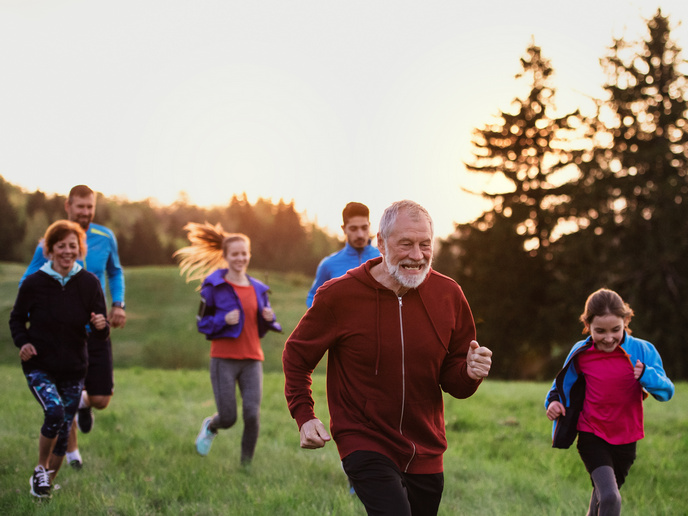Does it matter where you exercise?
The benefits of exercise for both physical and mental health are well known. We also know that the natural environment has a positive effect on mental well-being. But what about the effect of our natural surroundings on physical activity? Is it better for the body and mind if we exercise in a lush green park rather than along a city trail or in a gym?
Thinking green
Research teams in Denmark and Italy sought to provide insight into this underexplored topic. In fact, it’s one of the first-ever studies that brings together physiological measurements with peoples’ own experiences in green, urban and indoor settings and then investigates the link between the two. The findings were published in the journal ‘Psychology of Sport and Exercise’(opens in new window). “It is not new or surprising that nature is good for our health. But there has been a lack of research examining both the mental and physical effects of exercise in nature compared to the gym and the city,” comments co-author Stefano De Dominicis, associate professor at the University of Copenhagen’s Department of Nutrition, Exercise and Sports, in a news release(opens in new window). Twenty-five participants were put through a light-to-moderate intensity exercise regimen in natural, urban and indoor environments. Specifically, they completed a 1-hour walk at 6 km/h in a forest park, a route through a city centre and an indoor fitness area.
This is your brain in nature
The researchers collected several measurements before and after the sessions, including cortisol levels and heart rate. Questionnaires assessed factors such as psychological outcomes. Overall, the results revealed that the natural setting led to higher positive emotions (e.g. joy, satisfaction, optimism) and lower negative emotions (e.g. anxiety, irritation, boredom) compared to the urban and indoor areas. It also made exercise more enjoyable. “The participants felt significantly more relaxed and had lower levels of the stress hormone cortisol after walking in nature. At the same time, they reported greater joy and less fatigue,” explained De Dominicis. “Humans were born in nature and we have undergone most of our evolution in it. Therefore, it is not surprising that we feel good when we are in it.” “The figures show that nature not only gives a short-term boost to mood—it also reduces negative feelings and increases motivation to continue being physically active,” he added. Despite the advantages to exercising indoors, De Dominicis recommends getting in some regular outdoor exercise, too. “The mental and physical benefits seem to be significantly greater when exercising in nature, so people can benefit greatly from replacing just one of their weekly indoor workouts with 30 minutes of exercise in green surroundings.” The authors suggest that local governments and health professionals should focus more on green spaces in public health strategies, urban planning and exercise programmes. “We see great potential in using nature as a driving force for physical activity—especially for those who find it difficult to get started,” concluded De Dominicis.



